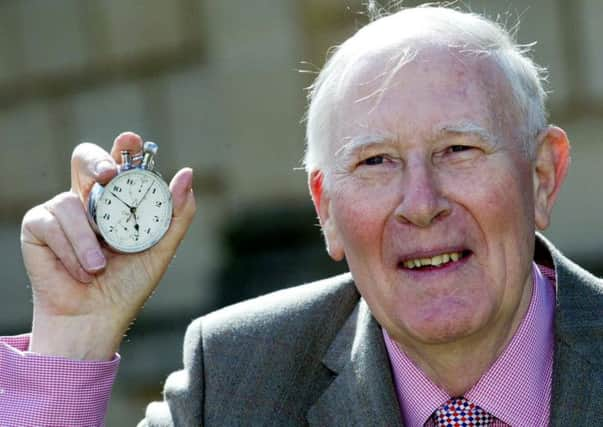Sir Roger Bannister reveals Parkinson’s diagnosis


Bannister, 85, made the admission in a BBC Radio Oxford documentary to mark the anniversary of his famous run in the city, which will be broadcast on Friday.
Bannister, who went on to have a distinguished career as a neurologist following his retirement from athletics, said: “I am having troubles with walking. Ironically it is a neurological disorder - Parkinson’s.
Advertisement
Hide AdAdvertisement
Hide Ad“There’s a gentle irony to it. I have seen and looked after patients with so many neurological and other disorders that’s I am not surprised I have acquired an illness. It’s in the nature of things.
“I am being well looked after and I don’t intend to let it interfere - as much as I can.”
Bannister said he was diagnosed with the condition three years ago but has refrained from speaking publicly about it until now.
He added: “Just consider the alternatives - that is the way I look at it.
“One of my pleasures in life - apart from running - has been walking. Intellectually I am not (degenerating) and what is walking anyway!”
Four-minute mile
Bannister broke the fabled time barrier on 6 May 1954 at Oxford’s Iffley Road Track with the help of Sir Christopher Chataway and Chris Brasher who acted as pacesetters.
Brasher died in 2003 after a short illness and Chataway died of cancer in January this year.
Bannister’s interest in neurology was one of the main reasons for his decision to curtail his athletics career after the 1964 European Championships.
Advertisement
Hide AdAdvertisement
Hide AdIn an interview with the Guardian in 2004, Bannister said: “I had always wanted to become a neurologist, which is one of the most demanding vocations in medicine.
“Where do you stop, after all, with the brain? How does it function? What are its limits? The work seems unending.”
Bannister later went on to become a Master of Pembroke College, Oxford.
He told the programme he believes there is much work still to do before a cure for the condition with which he has been afflicted can be found.
Bannister added: “I know quite a lot about [Parkinson’s] and have treated a lot of people with it.
“I am aware of all the research that’s been done. I think it will take some time before there is a breakthrough. But the management and drug treatments are improving all the time.”